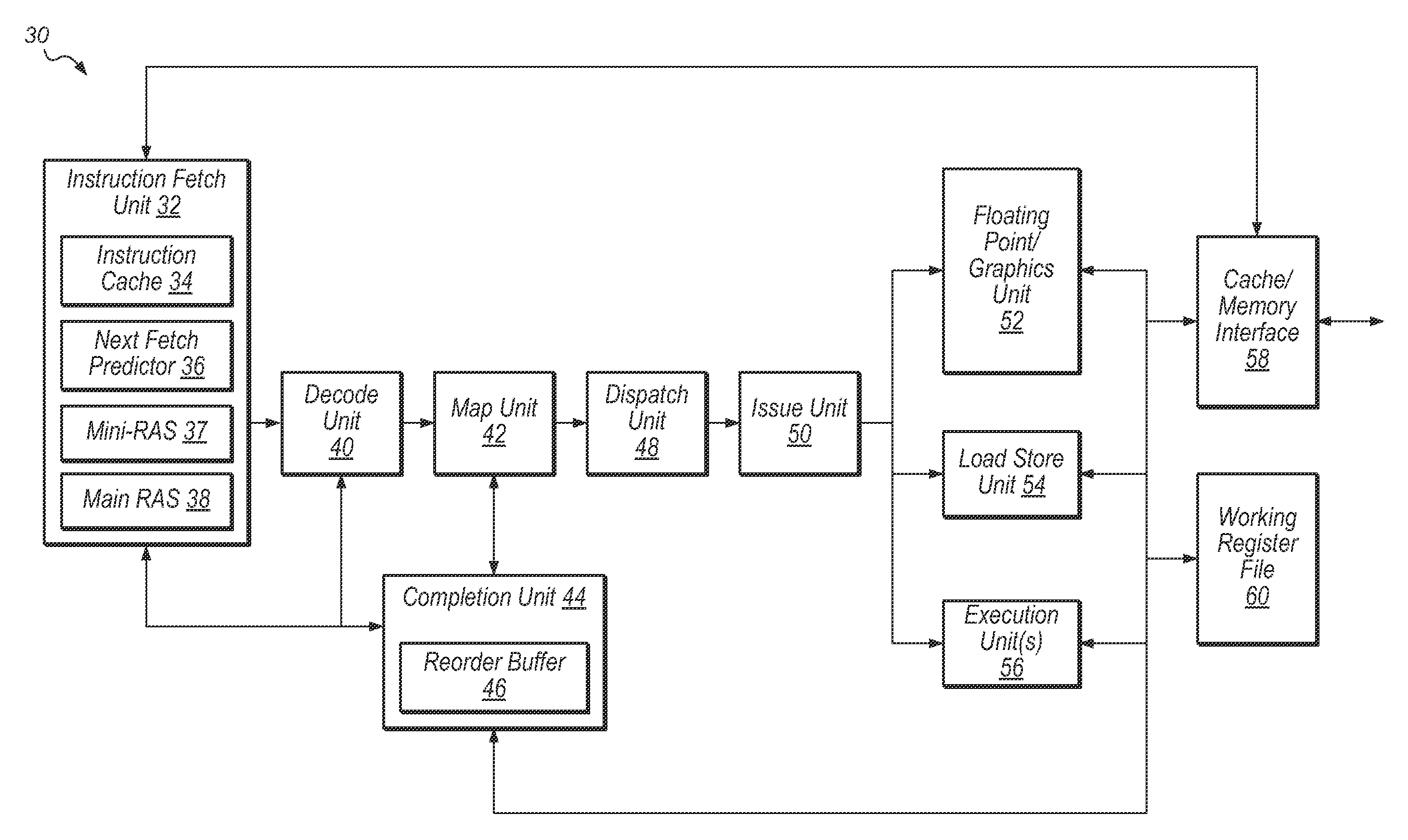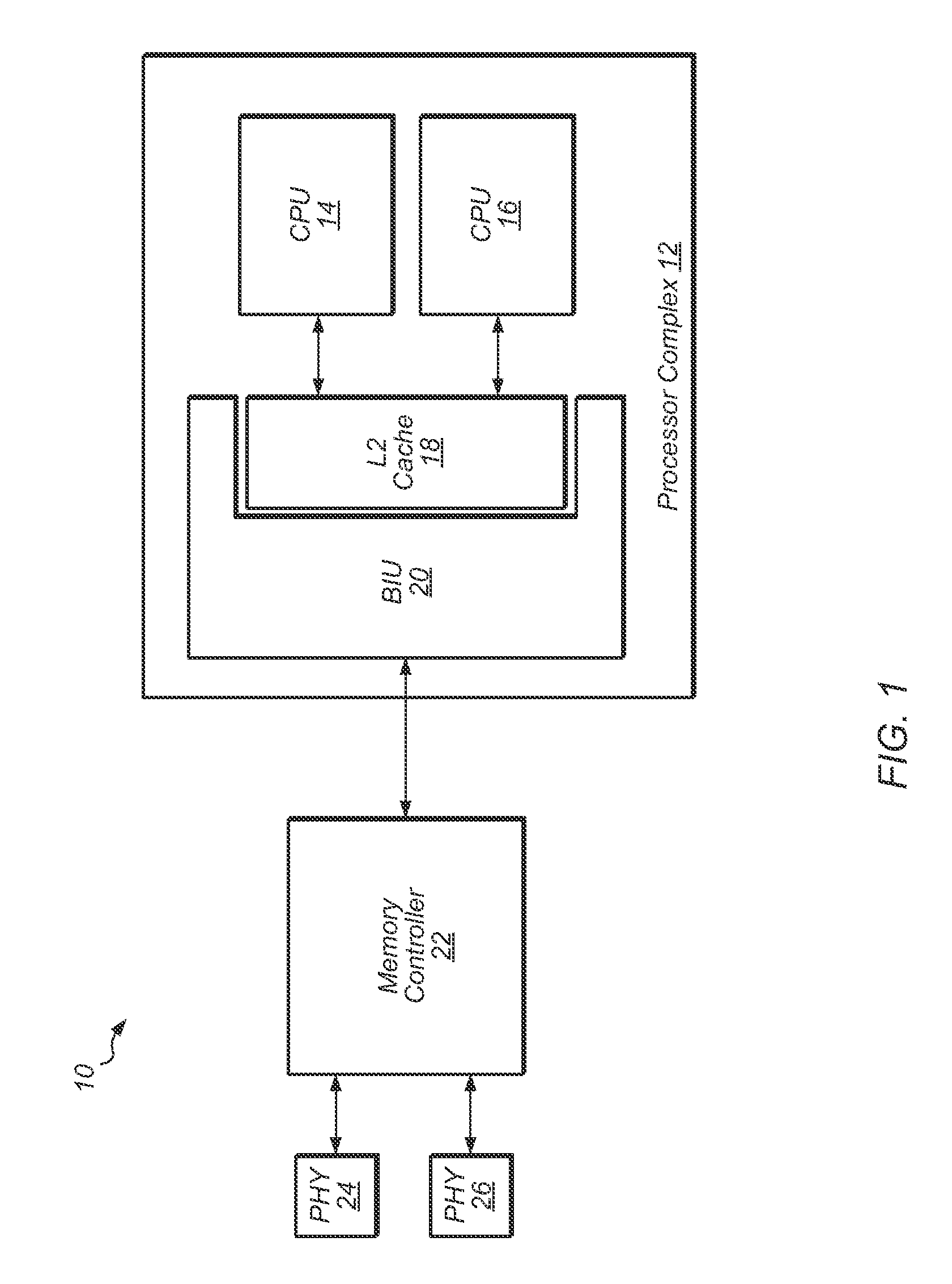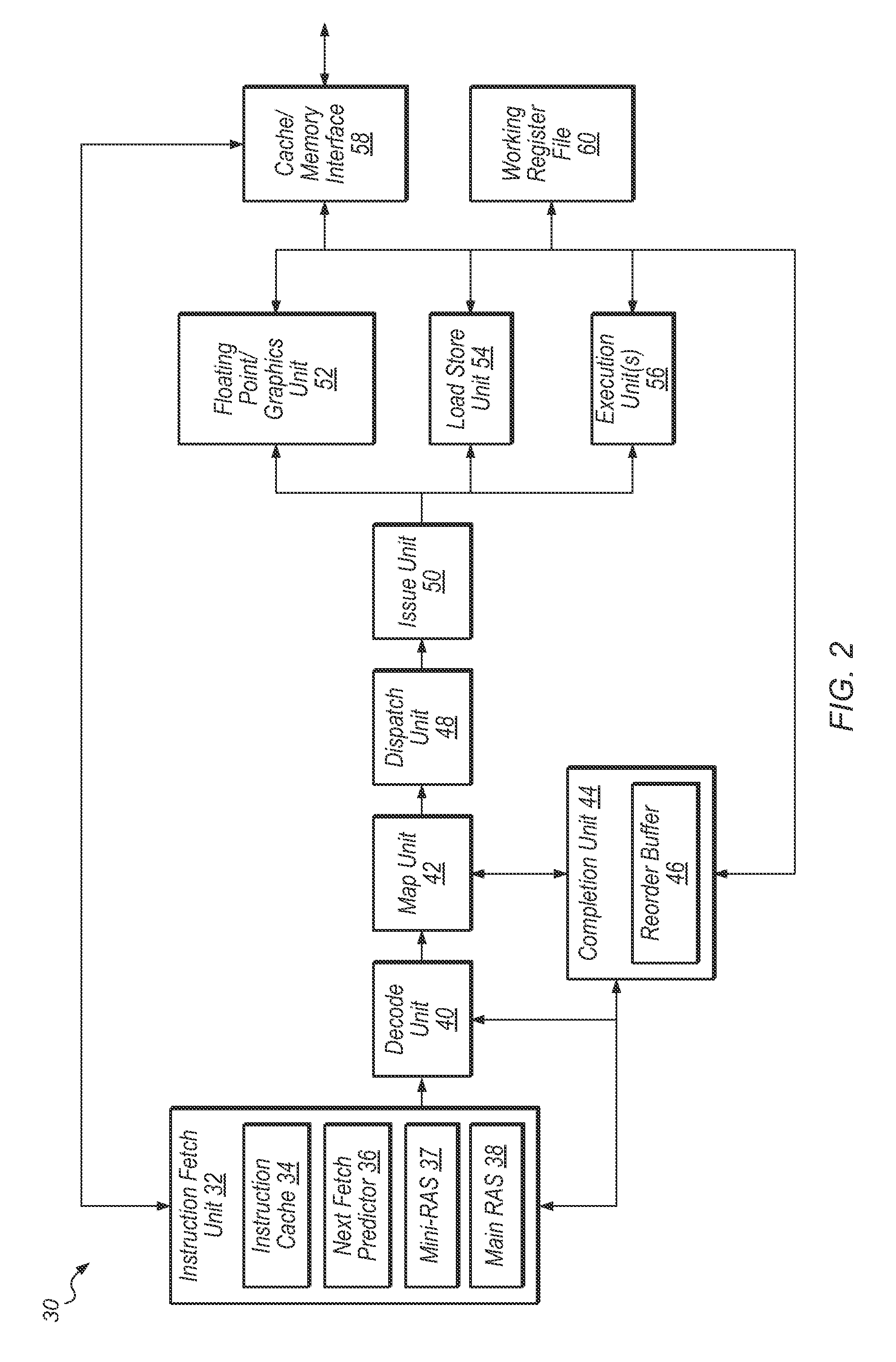Next fetch predictor return address stack
a prediction stack and address stack technology, applied in the field of microprocessors, can solve the problems of lower accuracy, instructions are fetched down the wrong path, and the sequential nature of the sequential nature of the program flow of the branch instruction, and achieve the effect of faster and more accurate branch prediction
- Summary
- Abstract
- Description
- Claims
- Application Information
AI Technical Summary
Benefits of technology
Problems solved by technology
Method used
Image
Examples
Embodiment Construction
[0008]Systems and methods for faster and more accurate branch prediction. In one embodiment, a processor may be pipelined into multiple pipeline stages. The processor pipeline includes a next fetch predictor, which may quickly generate branch prediction data, such as a branch direction and a branch target address. In some embodiments, the next fetch predictor may be a single-cycle predictor for branch instructions. The next fetch predictor may predict branch targets at an early stage of the processor pipeline. The processor pipeline may also include a return address stack (RAS) for storing return addresses for call branch instructions. The RAS may be updated at a later stage of the pipeline.
[0009]In one embodiment, the next fetch predictor may include entries for each of the branch instructions encountered in the program code. An indicator may be stored in each entry of the next fetch predictor to indicate if the branch instruction is a return branch instruction. In one embodiment, ...
PUM
 Login to View More
Login to View More Abstract
Description
Claims
Application Information
 Login to View More
Login to View More - R&D
- Intellectual Property
- Life Sciences
- Materials
- Tech Scout
- Unparalleled Data Quality
- Higher Quality Content
- 60% Fewer Hallucinations
Browse by: Latest US Patents, China's latest patents, Technical Efficacy Thesaurus, Application Domain, Technology Topic, Popular Technical Reports.
© 2025 PatSnap. All rights reserved.Legal|Privacy policy|Modern Slavery Act Transparency Statement|Sitemap|About US| Contact US: help@patsnap.com



